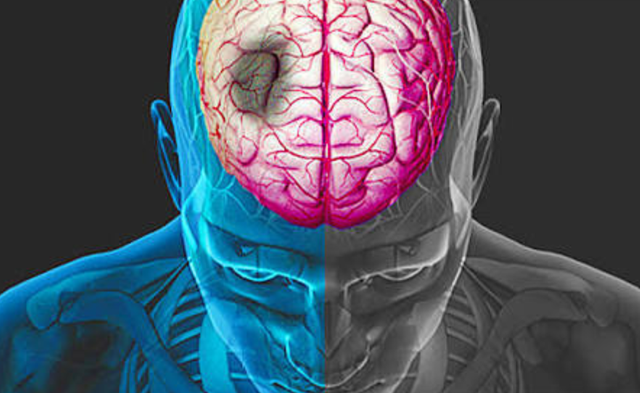What Causes Stroke? Is There A Genetic Component?

Is there a genetic factor to strokes?
A: Yes. There are genetic factors. There are some people that are born with certain genes that predispose them to stroke. One such condition would be CADASIL (cerebral autosomal-dominant arteriopathy with subcortical infarcts and leukoencephalopathy). If you are interested, I am sure you can learn more about this condition from the Web. Some people are born with genetic conditions that predispose them to clotting. This in turn may increase their stroke risk. Finally, if you have a strong family history of high blood pressure, diabetes, high cholesterol or any of the major modifiable risk factors for stroke, you may also be at higher risk because of this. However, these particular conditions are very much treatable and you certainly can do something about them to lower your risk.A stroke happens when blood flow to a part of your brain is cut off. Without the oxygen in blood, brain cells start dying within minutes. To help prevent a stroke, learn about the causes and the things that can raise your odds of getting one.
Types
A stroke can happen in two main ways: Something blocks the flow of blood, or something causes bleeding in the brain.Ischemic stroke. In 8 out of 10 strokes, a blood vessel that takes blood to your brain gets plugged. It happens when fatty deposits in arteries break off and travel to the brain or when poor blood flow from an irregular heartbeat forms a blood clot.
Hemorrhagic stroke. It's less common than an ischemic stroke but can be more serious. A blood vessel in your brain balloons up and bursts, or a weakened one leaks. Uncontrolled high blood pressure and taking too much blood thinner medicine can lead to this kind of stroke.
Some people have what's called a transient ischemic attack (TIA). This "mini stroke" is due to a temporary blockage. It doesn't cause permanent brain damage, but it raises your odds of having a full-scale stroke.
Causes
You can treat some conditions that make you more likely to have a stroke. Other things that put you at risk can't be changed:High blood pressure. Your doctor may call it hypertension. It's the biggest cause of strokes. If your blood pressure is typically 140/90 or higher, your doctor will discuss treatments with you.
Tobacco. Smoking or chewing it raises your odds of a stroke. Nicotine makes your blood pressure go up. Cigarette smoke causes a fatty buildup in your main neck artery. It also thickens your blood and makes it more likely to clot. Even secondhand smoke can affect you.
Heart disease. This condition includes defective heart valves as well as atrial fibrillation, or irregular heartbeat, which causes a quarter of all strokes among the very elderly. You can also have clogged arteries from fatty deposits.
Diabetes. People who have it often have high blood pressure and are more likely to be overweight. Both raise the chance of a stroke. Diabetes damages your blood vessels, which makes a stroke more likely. If you have a stroke when your blood sugar levels are high, the injury to your brain is greater.
Medications. Some medicines can raise your chances of stroke. For instance, blood-thinning drugs, which doctors suggest to prevent blood clots, can sometimes make a stroke more likely through bleeding. Studies have linked hormone therapy, used for menopause symptoms like hot flashes, with a higher risk of strokes. And low-dose estrogen in birth control pills may also make your odds go up.
Age. Anyone could have a stroke, even babies in the womb. Generally, your chances go up as you get older. They double every decade after age 55.
Family. Strokes can run in families. You and your relatives may share a tendency to get high blood pressure or diabetes. Some strokes can be brought on by a genetic disorder that blocks blood flow to the brain.
Gender. Women are slightly less likely to have a stroke than men of the same age. But women have strokes at a later age, which make them less likely to recover and more likely to die as a result.
Race. Strokes affect African-Americans and nonwhite Hispanic Americans much more often than any other group in the U.S. Sickle cell disease, a genetic condition that can narrow arteries and interrupt blood flow, is also more common in these groups and in people whose families came from the Mediterranean, the Middle East, or Asia.
Posted from myAirClinic Healthcare App. Download Android Version from PLAYSTORE!
Stroke is a condition that occurs when the blood supply to the brain is disrupted or reduced due to blockage (ischemic stroke) or rupture of a blood vessel (hemorrhagic stroke). Without blood, the brain will not get oxygen and nutrients, so cells in some areas of the brain will die.
Stroke can occur due to blockage (ischemic) or bleeding (hemorrhagic). Nearly 70% of stroke cases are due to bleeding in people with high blood pressure. As explained above if a stroke can affect people who have diabetes mellitus, and high cholesterol levels, it is therefore necessary to regulate diet to control blood pressure, cholesterol levels and blood sugar levels.
Treatment of stroke depends on the condition experienced by the patient. Doctors can give medicines or do surgery. Whereas to restore conditions, patients will be encouraged to undergo physiotherapy, and psychological therapy is followed if needed.
I got a lot of information about strokes after reading your writing. Thank you, friend ... I will try to avoid strong trigger factors considering my family has a history of high blood pressure and high cholesterol.
Very useful information.. Thank you.. @air-clinic.